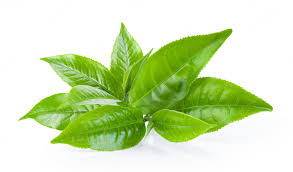What Makes Purple Tea from Kenya So Unique
Kenya has long been known for producing bold, brisk black teas, but in recent years, it’s gained attention for something far more rare — purple tea from Kenya. This tea is grown from a unique cultivar of the Camellia sinensis plant that developed a natural mutation, allowing it to produce anthocyanins — powerful antioxidants responsible for its purple-tinged leaves and subtle berry-like character.
Unlike green or black teas, purple tea Kenya strikes a delicate balance between light body and deep health benefits. It has a clean taste with soft floral notes, no bitterness, and just enough caffeine to lift your energy without overstimulation. Because of its growing conditions — high-altitude farms exposed to strong sunlight — the plants naturally generate more protective compounds, including polyphenols and catechins.
Farmers in Kenya, particularly in regions like Nandi Hills and Mt. Kenya, have embraced purple tea as a sustainable crop. It grows with minimal chemical input and supports smallholder communities who are pioneering this new category in the tea world. Each cup of purple tea from Kenya reflects both innovation and heritage — a modern twist on centuries of tea tradition.
Whether you're exploring for taste, health, or curiosity, purple tea Kenya delivers on all fronts. It’s more than just a colourful tea — it’s a story of nature, elevation, and craftsmanship in every leaf.
FAQs – Purple Tea from Kenya
Q1: What is purple tea from Kenya?
A: Purple tea from Kenya is made from a rare tea plant variety that naturally produces anthocyanins, giving the leaves a purplish tint. It’s grown in high-altitude regions and offers mild, smooth flavour with high antioxidant content.
Q2: How is purple tea Kenya different from green or black tea?
A: Purple tea Kenya is lighter than black tea, smoother than green tea, and contains unique antioxidants not found in most other teas. It also has less caffeine and no bitterness.
Q3: Is purple tea from Kenya good for health?
A: Yes, purple tea is rich in anthocyanins and polyphenols that support overall wellness, including heart health and cellular protection. It’s also low in caffeine and calories.
Q4: How should I brew purple tea Kenya?
A: Use hot water around 80–90°C (not boiling) and steep for 3–4 minutes. It can be enjoyed hot or chilled over ice for a refreshing drink.
